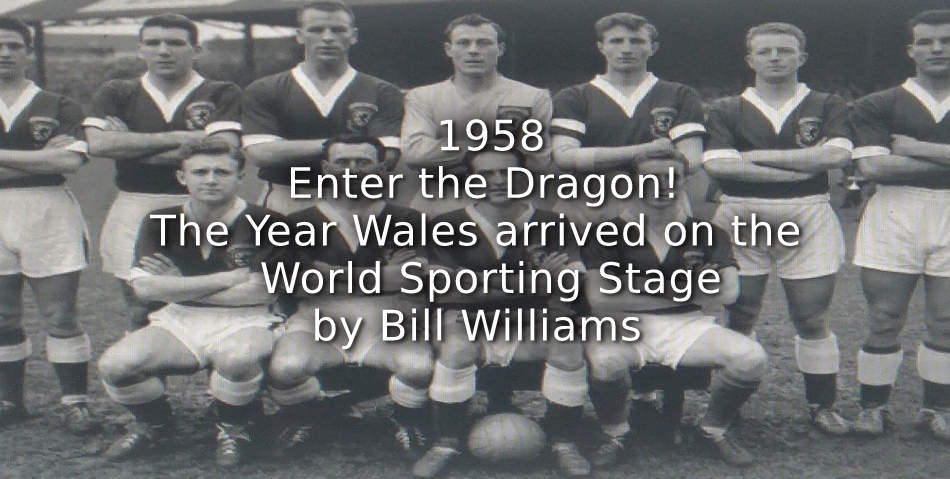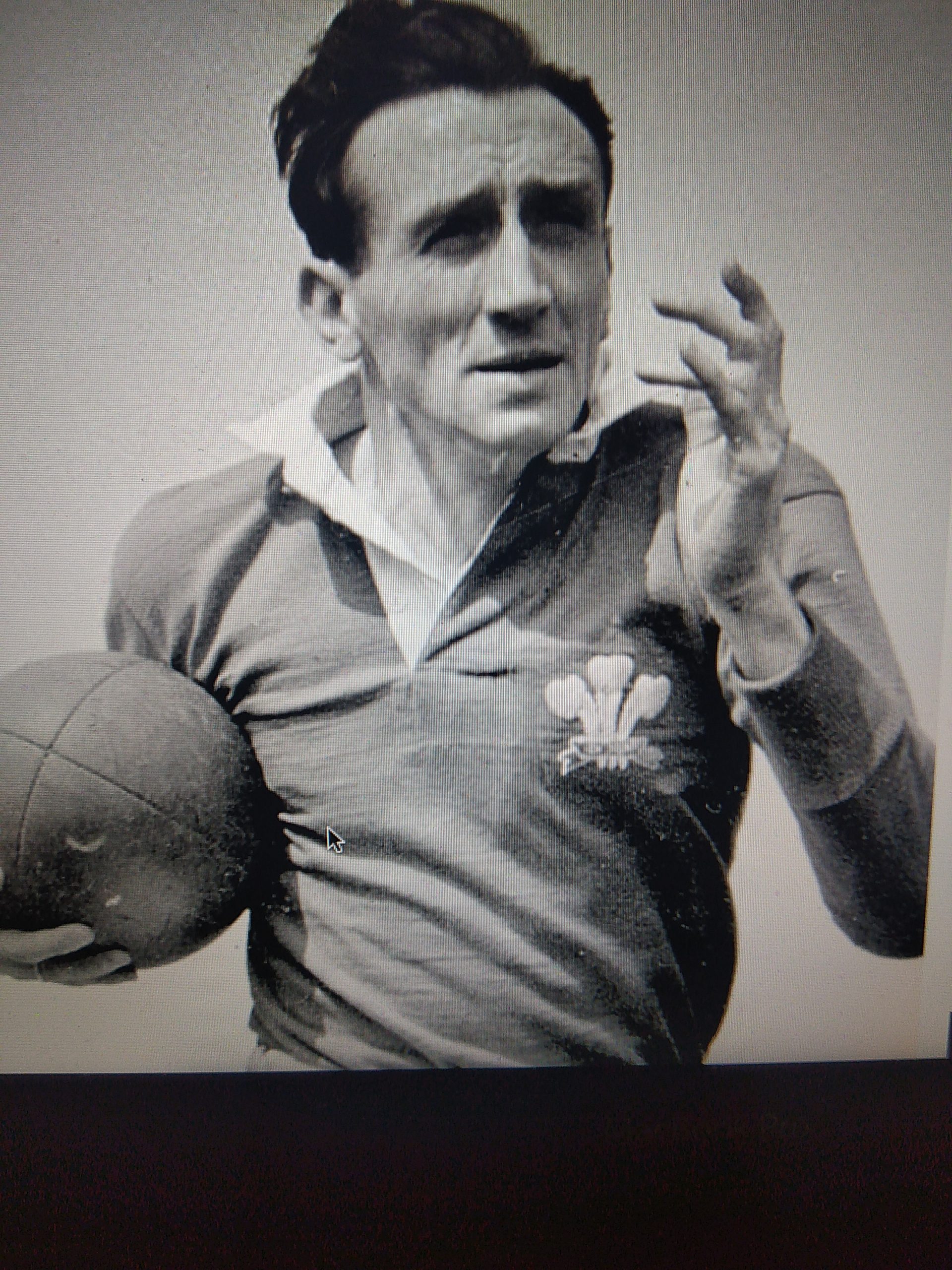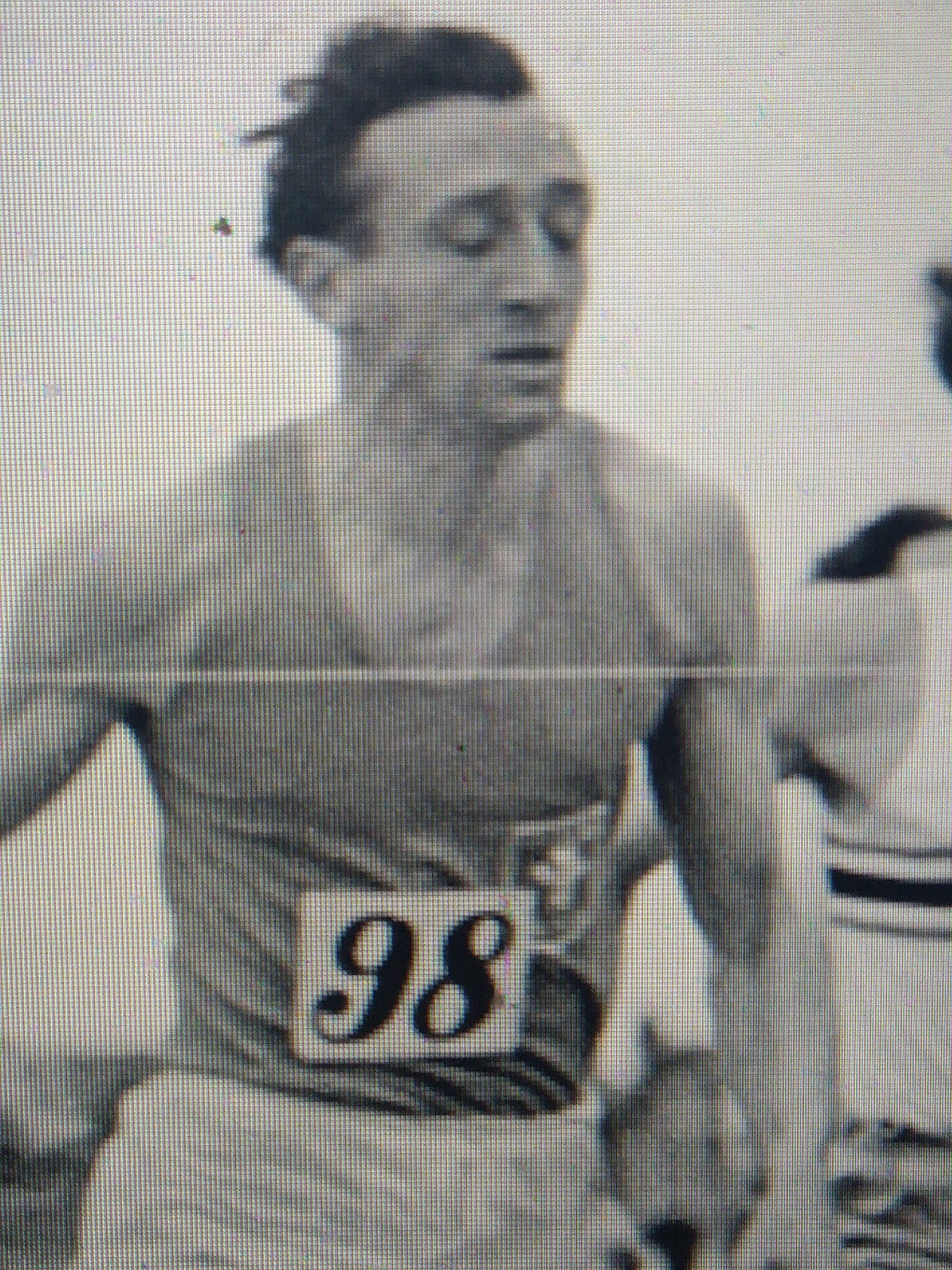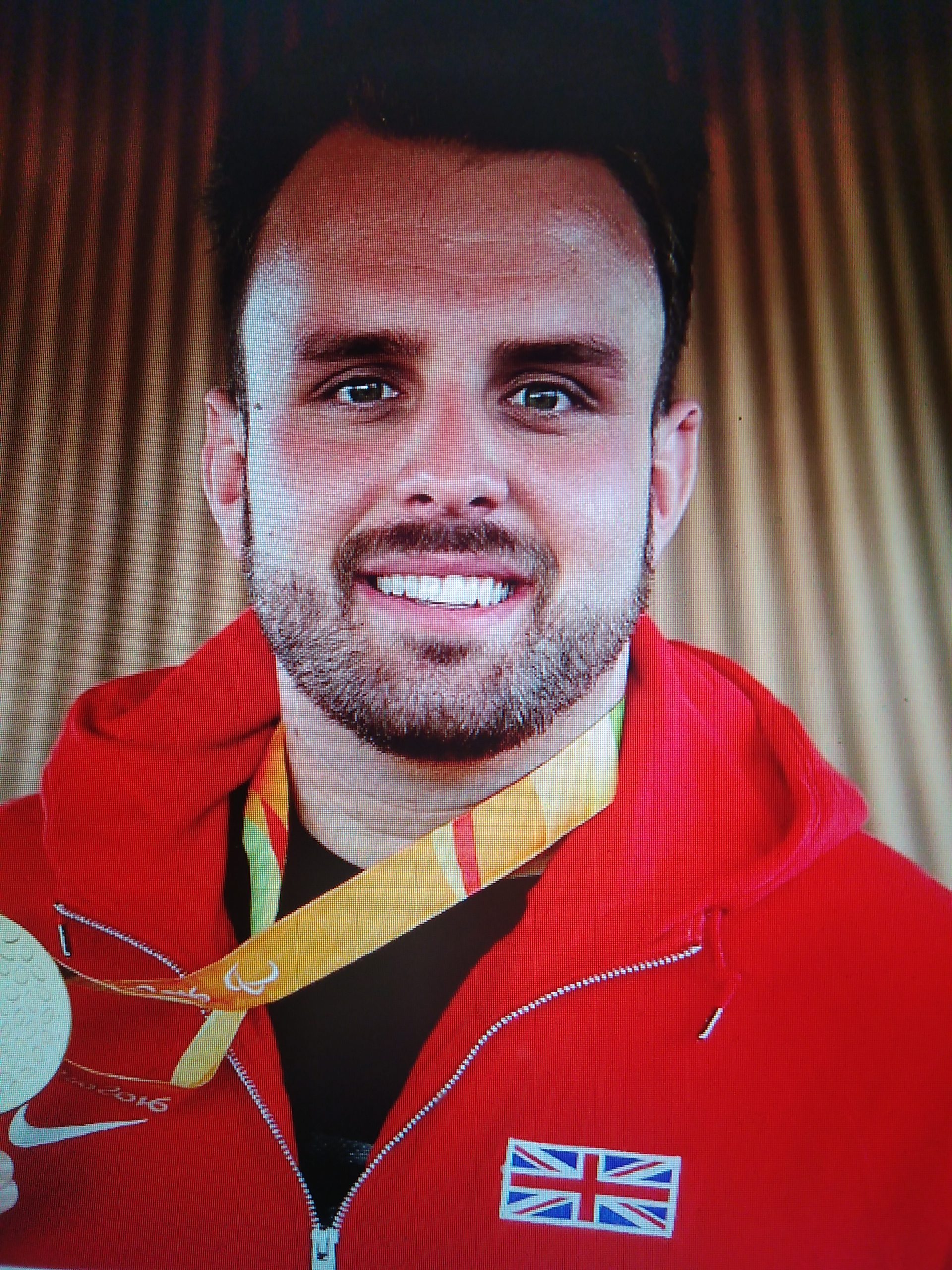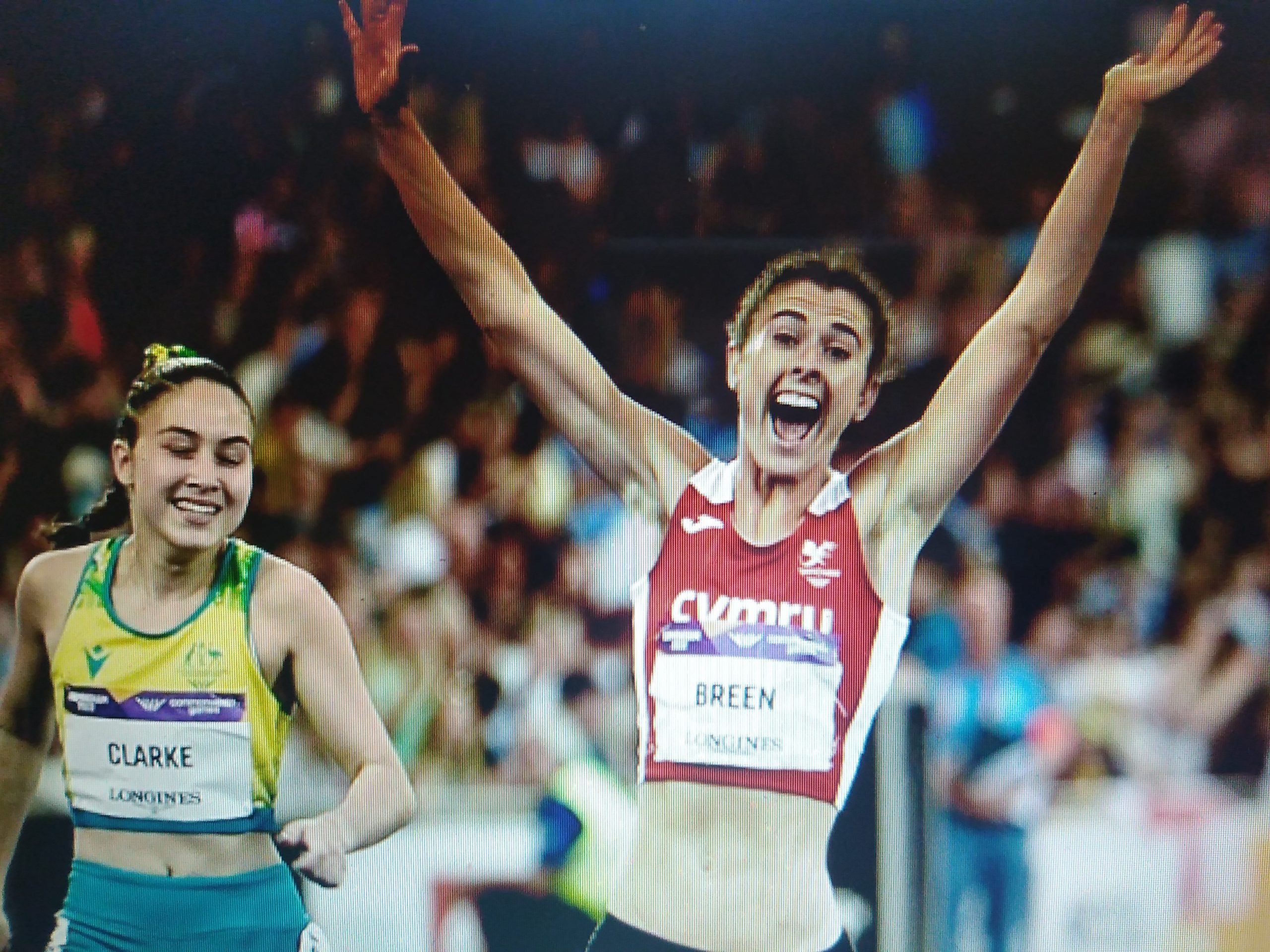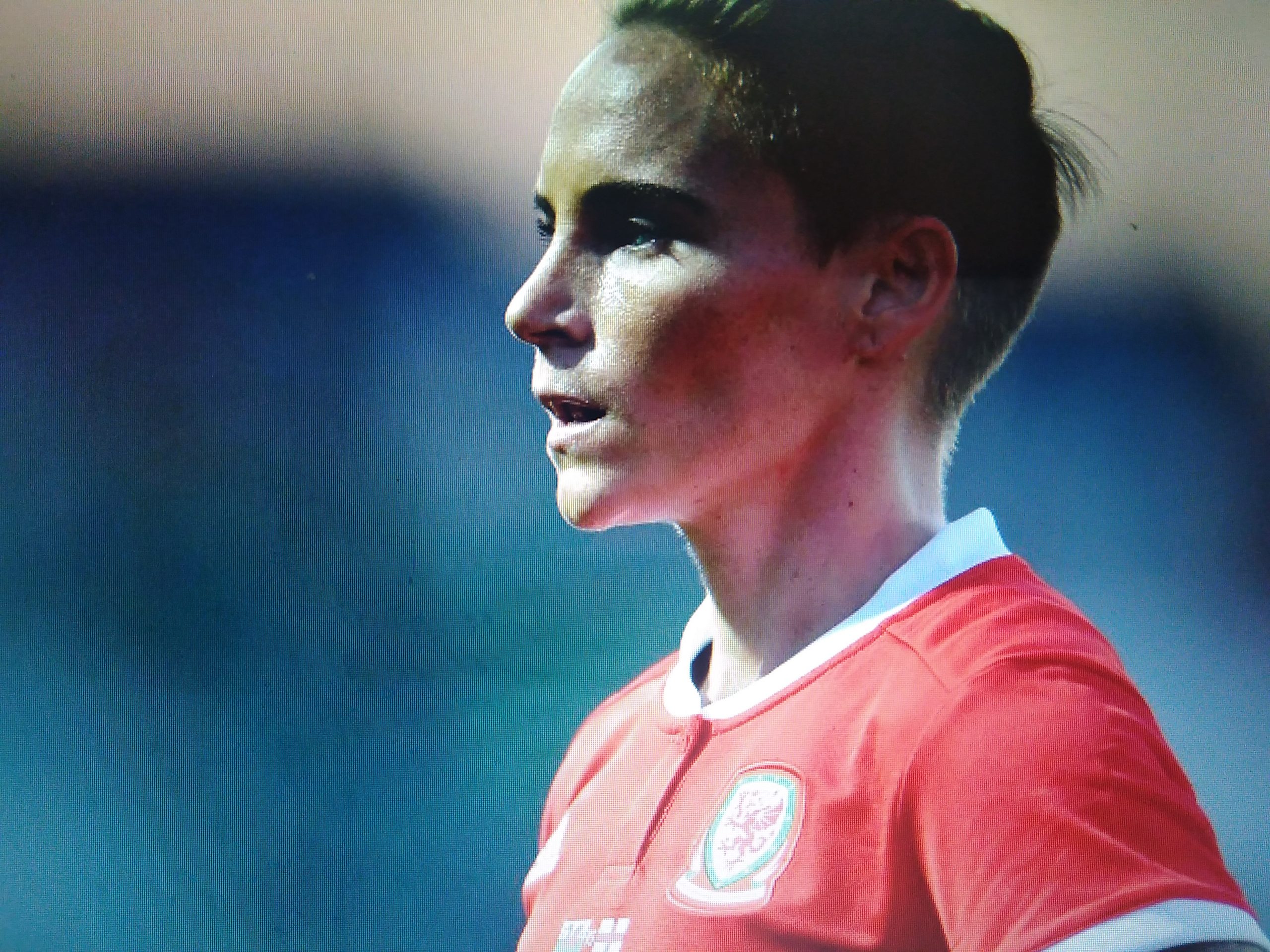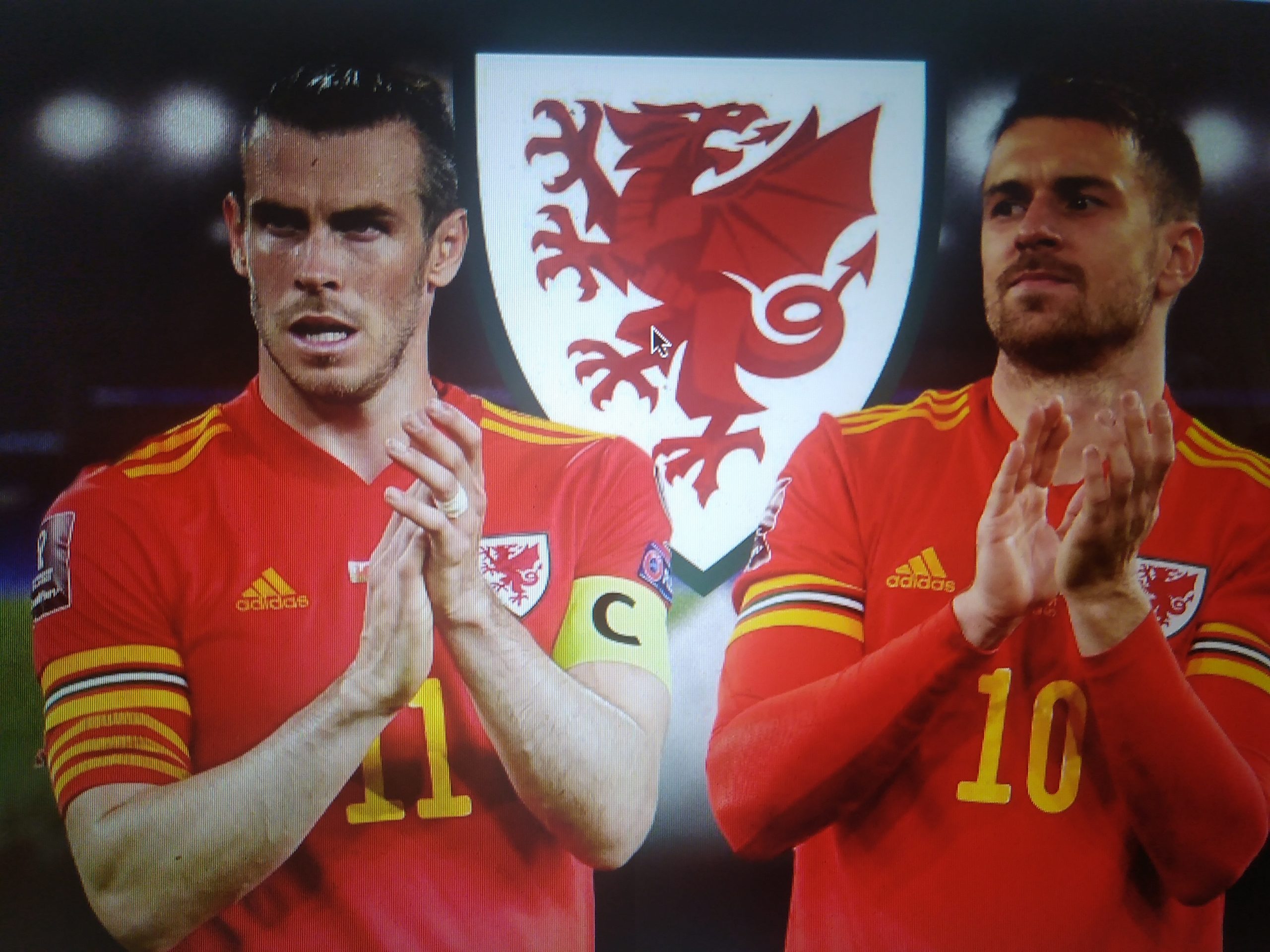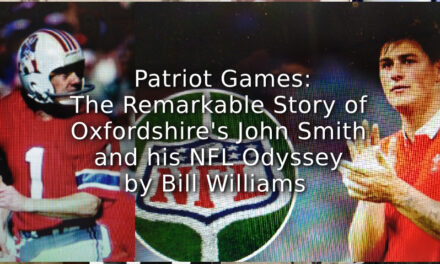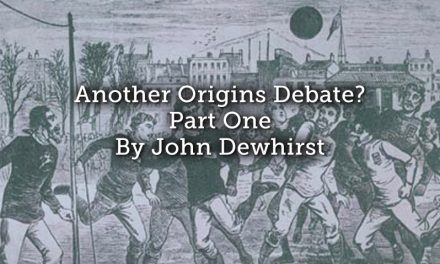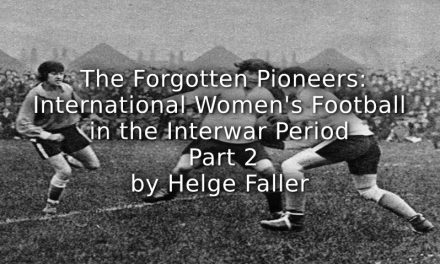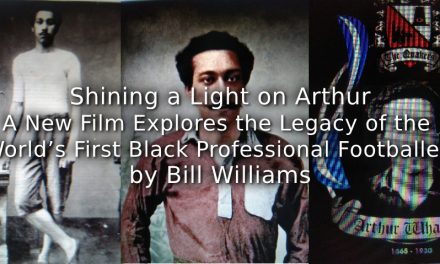Next year will mark 65 years, since sport in Wales experienced arguably its most exciting year.
The country achieved its highest profile on the world sporting stage by qualifying for the football World cup in Sweden for the first time and hosting the Empire and Commonwealth games in Cardiff. The Football Association of Wales [FAW] founded in 1876, is the third oldest national association in the world, behind England and Scotland.
Wales played their first international match in the same year, losing 4-0 to Scotland in Partick, selecting a team from a series of trial matches from those of Welsh heritage or with more than three years residency in the country [the rules on eligibility have not changed a great deal nearly 150 years later; it is now based on two years residency]. Interestingly, the Welsh Rugby Union wasn’t established until 1881, playing their first match [an 8-0 loss] against England in the same year.
Due to disagreements about ‘broken time payments’ [the compensation for the time players missed work in order to play sport] in 1928 Wales, along with the other home nations, resigned from FIFA. As a result, they were unable to compete in the three interwar competitions and did not re-join until 1946. For the two World Cups leading up to 1958, The British Home International Championships [an annual competition contested between the four home nations, last played for in 1984] was used as the qualifying group for the four British teams; Wales unfortunately, failed to qualify for both.
The qualification process for the 1958 competition to be held in Sweden saw the home nations split up and England, Scotland and Northern Ireland all qualified; Wales finished in second place in a group with Czechoslovakia and East Germany, therefore ending their hopes of qualification.
Or so they thought!
Israel had qualified without playing a single match [due to their opponents pulling out for political reasons], so FIFA ordered a qualification play-off against one of the second placed teams in Europe. Belgium was drawn out of the hat first but declined on principle; Wales were drawn next and accepted and went on to win the two-legged match 4-0 on aggregate. Wales were going to their first World Cup.
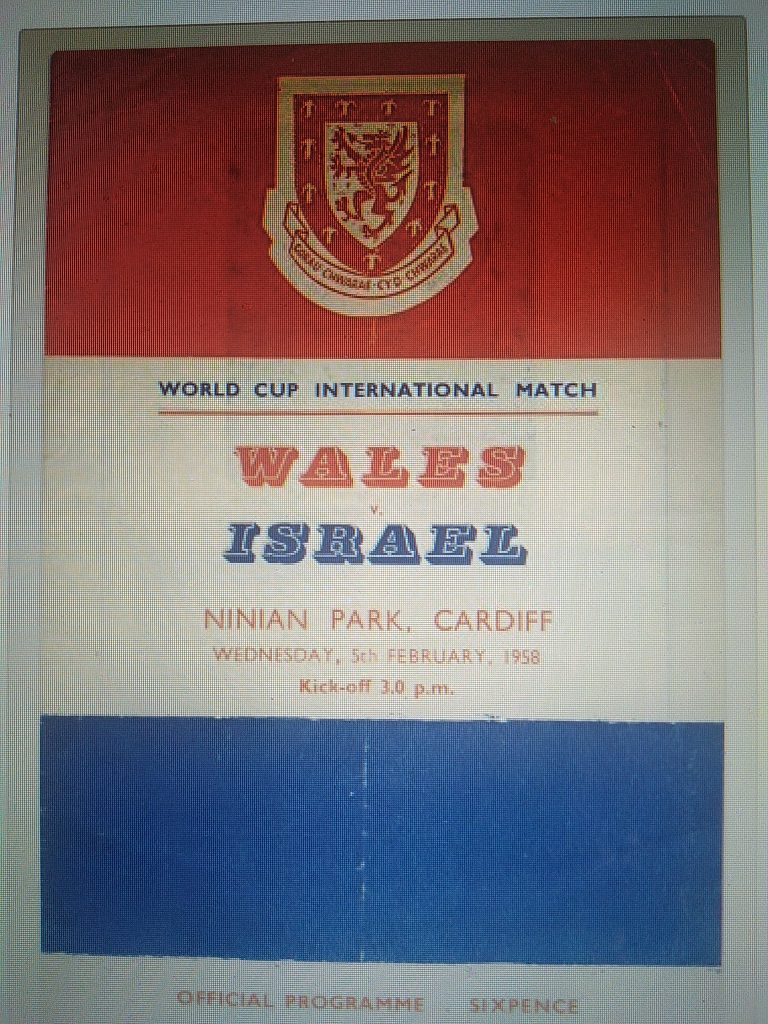
Wales v Israel- the programme from the second leg qualifier, which Wales won 2-0 and thus qualified for their first World Cup Finals
Meanwhile, alongside this the Wales Manager [also Manchester United’s Assistant Manager], Rhondda born Jimmy Murphy, who had missed United’s ill- feted trip to Belgrade the day before, which had resulted in the plane carrying the team and the coaching staff crashing at Munich Airport killing twenty three people, eight of which were players. The ‘Busby Babes’ named after their Manager Matt Busby contained many young players, [such as Duncan Edwards, who died in the crash and at 21 had already been capped 18 times for England] he had come through the youth system at United and had won the League Championship in 1955-56 and 1956-1957.
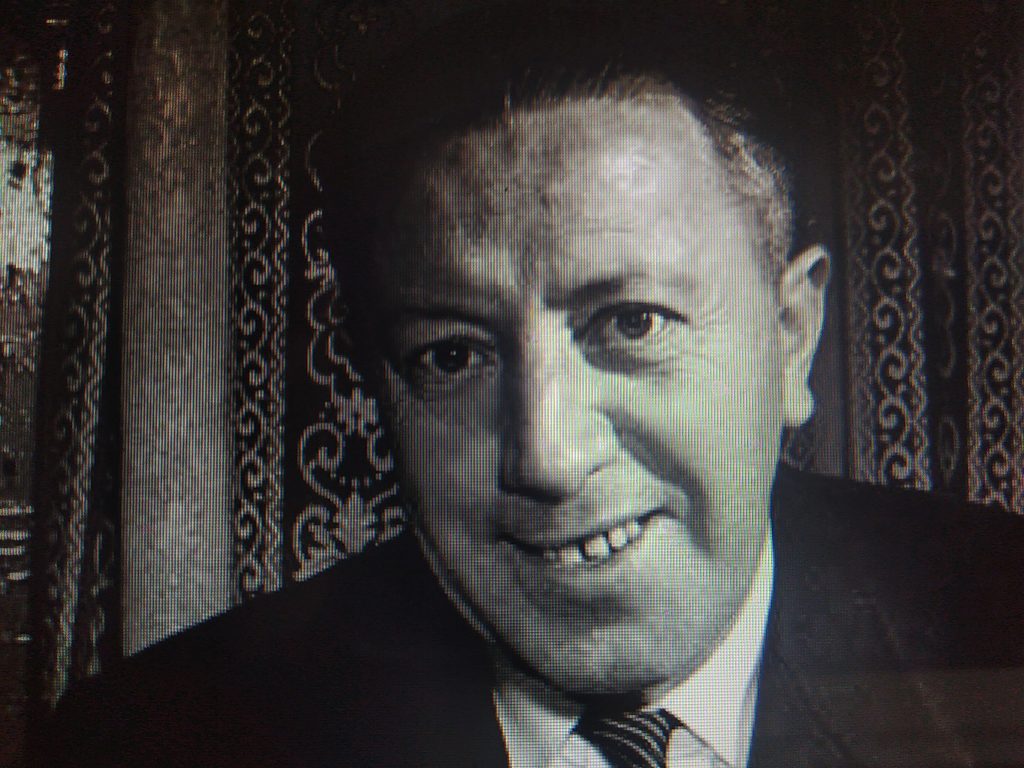
Jimmy Murphy- Wales manager in 1958
Busby himself had been badly injured in the crash, so Murphy virtually ran the club while he recovered, often without sleep and it is impossible to imagine the impact on Murphy’s state of mind during this traumatic period. Murphy, born in Ton Pentre in 1910, had played 15 times for Wales and made over 200 appearances for West Bromwich Albion during his playing career. During World War two, Murphy was giving a speech about football to some troops and in attendance was Matt Busby, who was so impressed that upon his appointment as Manager at Manchester United, he invited Murphy to join him as ‘Chief Coach’; he became Assistant Manager in 1955 and was instrumental in bringing through young players, like Bobby Charlton and Duncan Edwards into the first team squad.
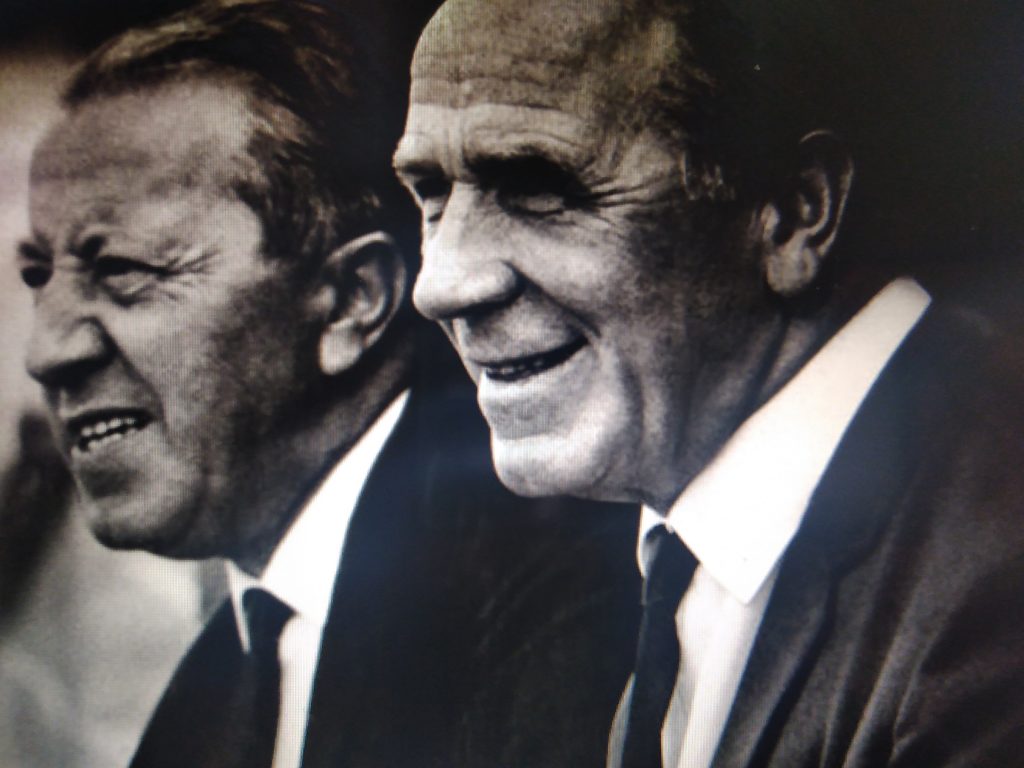
Jimmy Murphy and Sir Matt Busby in the dug -out at Old Trafford.
At the World Cup however, Wales’s draw could have been a lot tougher, as they managed to avoid the stronger nations of West Germany, France and Brazil in the group stages. They proved themselves equal to Hungary, Sweden and Mexico by drawing all of their matches, which resulted in a play-off with Hungary. In this match, the Hungarians were determined from the outset to minimise the contribution of Wales’s John Charles, who limped through the match due to the persistent fouls by the Hungarians [substitutes would not be allowed until Mexico 1970] but he did provide the pass for striker Ivor Allchurch to score the equaliser.
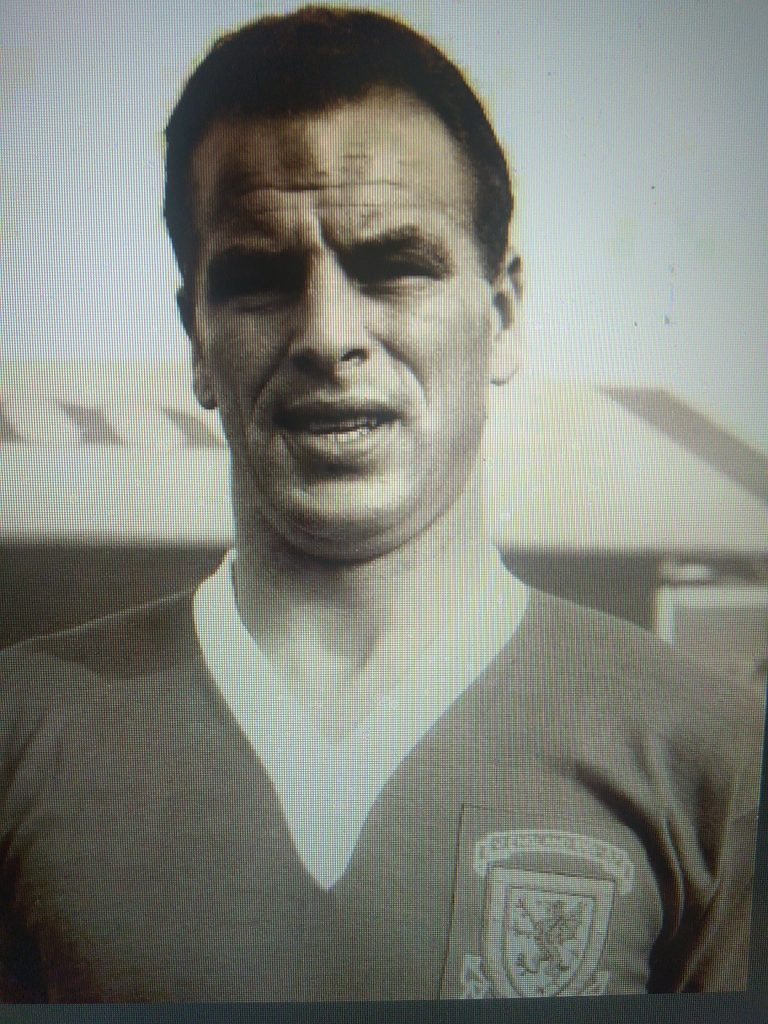
John Charles- ‘A rare talent’.
Charles, born in Swansea in 1931, had begun his career at Leeds United in 1949 and was a rare talent; not only was he a great centre forward, but he was equally adept as a centre half. In the summer of 1957, he joined Juventus in Italy and in his five seasons with the club, he won ‘The Scudetto’ [The National Championship] three times. He returned to Leeds in 1962 but went back to Italy and signed for Roma a year later. He ended his career with non-league Hereford United and throughout his long and successful career he was never sent off or cautioned, which led the Italians to nickname him, ‘Il Gigante Buona’ [The Gentle Giant]. In 1998 he was included in the FA 100 Legends and in 2002, was one of the first to be inducted into The Football Hall of Fame.
Wales progressed to the quarter- finals courtesy of a Terry Medwin goal late in the second half which set up a tie against one of the favourites Brazil, which contained a 17-year-old Edson Arantes do Nascimento, better known by his nickname, ‘Pele’. In a tight match there was very little to choose between the teams, however Wales without John Charles, who had been injured in the play-off, lacked a target man and failed to make any impression on the Brazilian goal. With 15 minutes remaining, Pele’s flick past defender Mel Charles, resulted in a toe-poked goal past the despairing Welsh ‘keeper Jack Kelsey; Wales were beaten 1-0 and were out of their first and what would prove to be, their only World Cup until qualification for Qatar 2022. Brazil went on to beat the hosts Sweden 5-2 to win the tournament for the first time in their history.
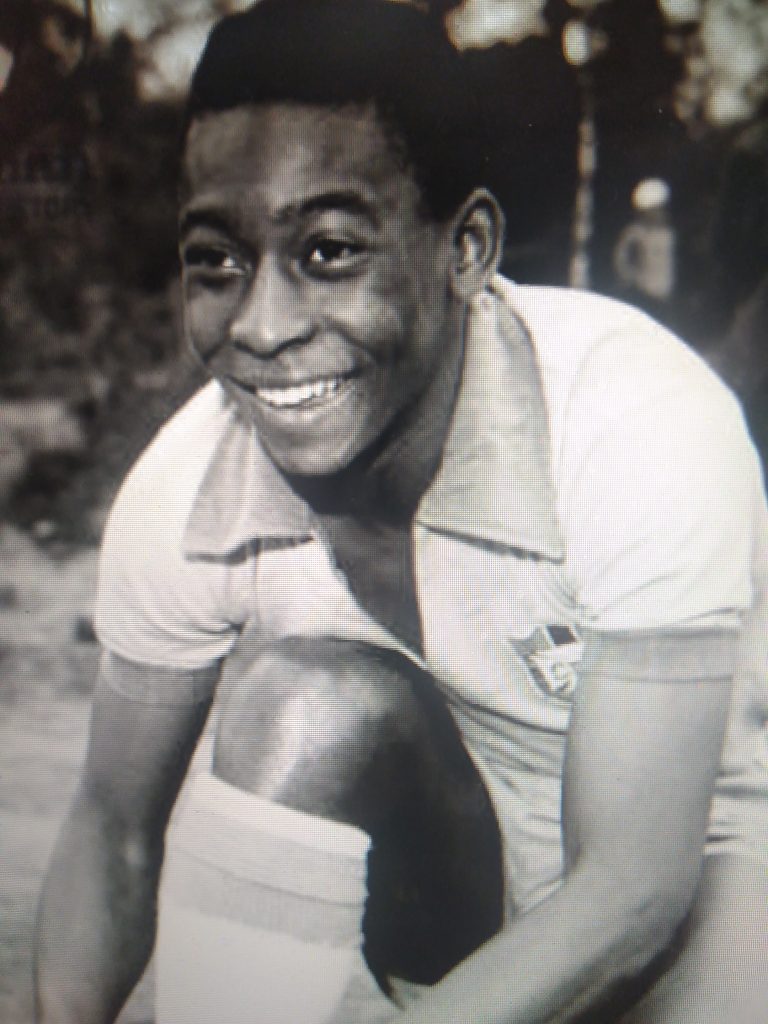
A 17 year old Pele, who scored the goal that put Wales out in the quarter finals.
The positive legacy of that World Cup performance in 1958 on Welsh clubs, however, is debatable with Welsh football struggling to find a consistent place at the topflight of English football in the subsequent decades, despite having four clubs in the English League.
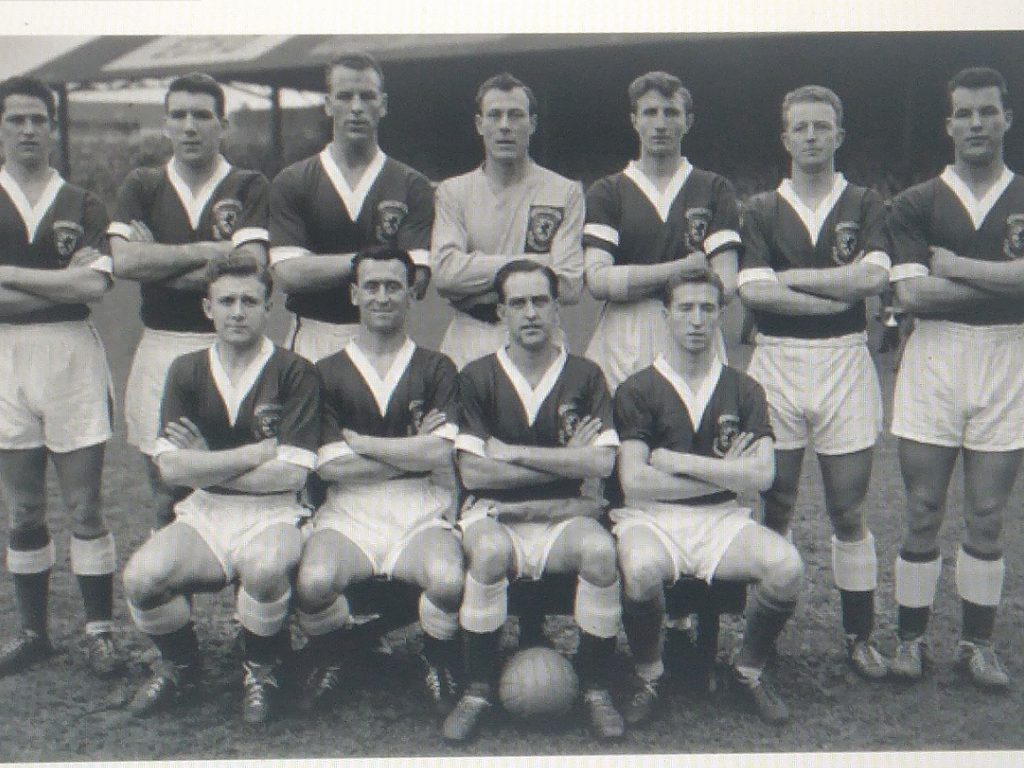
The Welsh Team in 1958
Cardiff City were promoted to the ‘old first division’ between 1960 and 1962 and progressed to the quarter finals of The European Cup Winners Cup in 1965 and did gain promotion to the Premier League in 2012-13, but were relegated to the Championship the following year and are currently still there. Swansea City spent most of the 1960’s in the ‘old third division’ and were relegated to ‘division four’ in 1967; the all-time low came in 1973-74 when they were forced to apply for re-election to the Football League. A meteoric rise from division four to division one came in 1981, when John Toshack’s team were promoted, but unfortunately relegation in quick succession came and the club slid back down the divisions and almost ceased to exist in 1985, until a local businessman, Doug Sharpe, stepped in to buy the club. Fast forward to 2010-11 and Swansea, under Brendan Rogers, were promoted and became the first Welsh club to play in the Premier League after its formation in 1992. In 2013, they won the League cup, but were relegated back to the Championship in 2018 and are currently still there.
Wrexham [the oldest club in Wales formed in 1864] spent the 1960’s in the ‘fourth division’ and avoided relegation in 1990-91, purely on a technicality, but could not avoid the drop in 2005 and in 2019-20, the club finished in its lowest position in its history. In November 2020, the club was taken over by Hollywood actors Ryan Reynolds and Rob McElhenney and currently competes in The National League, which is the fifth tier of the English Football League.
Newport County have never competed above the third tier of English football and are currently in league two.
As far as the national team is concerned, it took 18 years for Wales to qualify for The European Championships, losing in the Quarter Final to Yugoslavia and a further 30 years before they reached the semi-final in France, losing this time to the eventual winners Portugal.
‘More generally, however’, says Matthew Taylor in ‘The Association Game’ first published in 2008, ‘the 1958 World Cup only served to underline the comparative weakness of British football’. In 1960, George Raynor the ex-English footballer who coached Sweden at the World cup, criticised the home nations for their poor performances at the competition. ‘Despite the lessons of the mid 1950’s, the British still underestimated the rest of the world and refused to take international football seriously enough; club football mattered more’ suggested Raynor. ‘British teams were not yet equipped to win a World Cup’.
As history recalls, it would take six more years before England would win the World Cup in 1966, Scotland would not qualify again until 1974 and it would take until 1982 before Northern Ireland appeared again. Wales, on the other hand could not successfully build on the 1958 performance and have, despite several near misses, had to wait 64 years to qualify again. There is no coincidence however in the fact that they, like the 1958 tournament with the likes of John Charles, Ivor Allchurch and Terry Medwin, have relied on a small number of charismatic players such as Aaron Ramsay and captain Gareth Bale, to get them through.
However, there has been a recent shift in momentum and Wales, having reached the semi-final of the Euros in 2016, qualified again in 2020 and for the Qatar World Cup later this year and are now being seen as a nation that qualifies regularly for major tournaments. They are currently ranked 12th in Europe and 19th in the world; not bad for a country with less than 4 million people.
Also, independent research claims that Football has now overtaken Rugby Union as the most popular sport in Wales and sees more participants across the country than any other sport. The research conducted in April 2022 has obviously pleased the FAW who are keen to build on the success of the national team. The report suggests that Rugby has also seen an increase in participation, but is now behind its biggest rival and a spokesperson for the FAW said that, ‘In conjunction with our strategic aims for Welsh Football, this research provides us with insights on where we need to focus on for even more improvement’.
The FAW have recently announced that all project profit from FIFA’s prize money of £4 million, would be invested directly into grassroots facilities across Wales and Chief Executive Noel Mooney promised the following, ‘ We want to build grassroots clubs across Wales that act as wellness spaces for the community and to drive football forward through health, culture, music, language, sustainability, equality, diversity and inclusion’.
In an interview with ‘Wales Online’, Welsh supporter Mared Jones from Gwynedd summed up the mood,
‘to reach a World Cup will put Wales on the map, as many people across the world still believe that Wales is a part of England! So, in many ways, it is a good thing that we are playing England in the group stage. This is a golden opportunity to show the world who we are’
One month after the quarter final defeat in 1958, the nation was ready for the second part of this most exciting year.
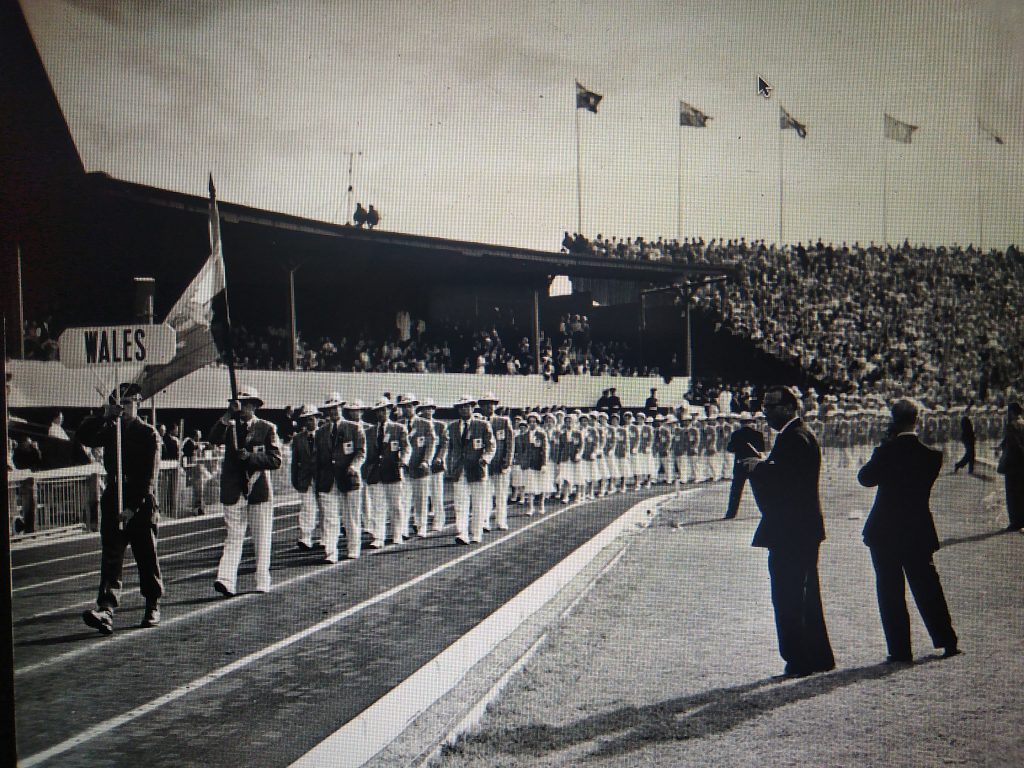
The Welsh team arrives in the Arms Park
Wales is one of only six countries to have competed in every Commonwealth Games since 1930 and take part as a separate entity, as in The Six Nations Rugby Championship or the Football World Cup. In 1958, they were poised to host the Games for the first time in their history in the newly established capital city of Cardiff. Despite being registered as a city in 1905, Cardiff had to fight off stiff opposition from Caernarvon in the north and Aberystwyth in the west, to be awarded ‘Capital Status’ in 1955.
Wales had to wait 12 years longer than originally scheduled to host the games, as the 1946 event was cancelled due to WW2 and the triumph of Wales and Cardiff in staging the sixth ‘British Empire and Commonwealth Games’, marked the largest sporting event ever held in Wales, until the Rugby World Cup in 1999.
The games had only taken on the title four years earlier and would change again in 1966 to ‘The British Commonwealth Games’, changing again to its current name , ‘The Commonwealth Games’ from 1978 onwards.
The 1958 Games were held in Cardiff from 18-26 July 1958 and invited some 35 Nations, territories and dependencies, including for the first time, Singapore, Ghana, Kenya and the Isle of Man . In all over 1,000 athletes took part.
The games introduced the Queen’s baton relay, which has been conducted ever since. The relay is now held prior to the beginning of the Commonwealth Games [most recently in Birmingham 2022] and it carries a message from the Queen to all the nations of the Commonwealth and is similar to the Olympic Torch Relay which was first performed at the 1936 competition in Berlin.
At Cardiff, it was England’s famed middle-distance runners Roger Bannister [first sub 4 minute miler in 1954] and Chris Chattaway [first winner of BBC Sports Personality of the Year in 1954] who were handed the honour of taking the Queen’s baton from Buckingham Palace to Cardiff Arms Park, but it was the dual international, Welshman Ken Jones that carried the baton into the stadium and handed it to the Duke of Edinburgh, who read out The Queen’s message to The Commonwealth.
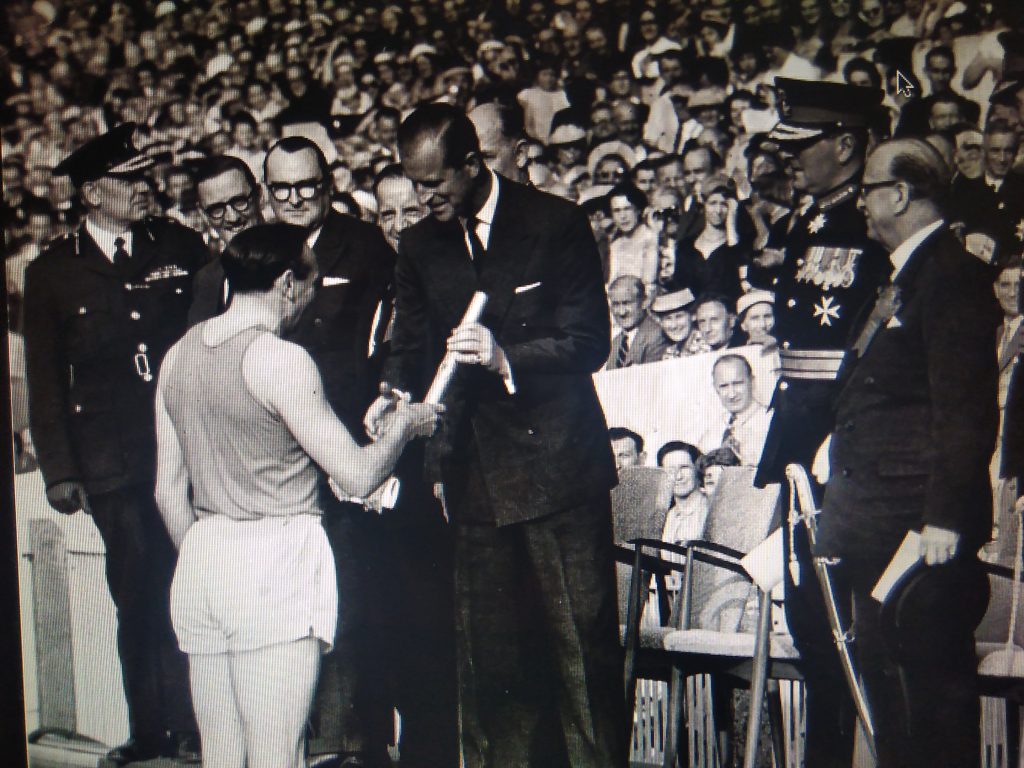
Ken Jones hands over the Queen’s baton to the Duke of Edinburgh
Jones, born in Blaenavon in 1921 was another rare talent gaining international honours in two different sports, during his career. He represented Wales at Rugby Union for the first time in 1947 and went on to gain 44 caps over the next ten years and is most famous for scoring the winning try against the New Zealand All Blacks in 1953 [the last time Wales secured a victory over them]. He also represented the British Lions on their tour of New Zealand in 1950. Whilst playing rugby for Wales, Jones also represented Great Britain in the 1948 London Olympics, winning a gold medal in the 4×100 metres relay.
- Ken Jones- Rugby International
- Ken Jones – Athletics International
The Cardiff games were to be South Africa’s last until their post-apartheid return to the games in 1994; a number of objections against them took place because their team had been selected on the basis of race and colour rather than ability and so South Africa subsequently withdrew from the commonwealth in 1961 for 30 years.
Many doubted Wales’s ability to pull it off, but from the outset, those who were there say they witnessed an event which ‘would change Wales forever’. World attention focused on the games perhaps more than on any that had gone before and was the first competition since the reality of a disintegrating British Empire, had prompted the organisers to restyle themselves as The British Empire and Commonwealth Games.
With 23 of the 35 nations competing teams winning medals, Professor Peter Stead, a Welsh cultural and social historian, said that ‘the true legacy of the games was that new opportunities had become possible for small nations’. Wales was and still is the smallest nation ever to host the games.
‘You have to remember that Wales had only just got its own secretary of state and Cardiff hadn’t long been confirmed as the Welsh capital [1955] and it was as a result of the success of the games, that the Government was finally forced to recognise the Red Dragon as the flag of Wales in 1959’, argued Stead.
England topped the medal table with 29 gold, 22 silver and 29 bronze medals; Wales secured a best 11th place, with a haul of 1 gold, 3 silver and 7 bronze medals; 2 from fencing 1 each from athletics, rowing, and cycling and 6 coming from the boxing team, which included Howard Winstone’s gold in the ‘featherweight category’
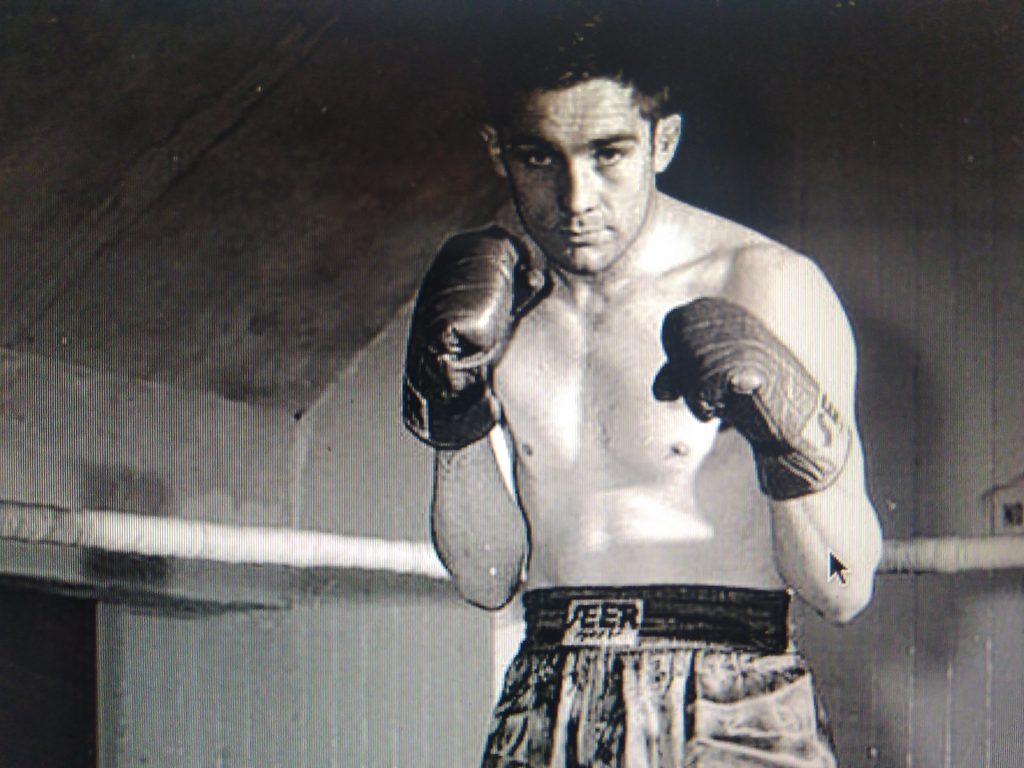
Gold medalist Howard Winstone
Winstone, born Merthyr Tydfil in 1939, won 83 of his 86 amateur fights and won the ABA Bantamweight title in 1958. Having won the gold medal in Cardiff, he won the first BBC Wales Sports Personality of the Year in the same year. Turning professional in 1959, he won the British title in 1961, followed by the European title in 1963, however after having failed to beat the Mexican Vicente Saldivar on two previous attempts, Winstone won the World Title in 1968 beating the Japanese fighter, Mitsunori Seki at The Royal Albert Hall. He retired soon after.
The games featured 9 sports: athletics, boxing, cycling, fencing, lawn bowls, rowing, swimming, diving, weightlifting, and wrestling. Preparations had begun months before as money had to be raised and venues prepared. Improvements were made to the south stand at Cardiff Arms Park, but the pinnacle was the building of the new Empire Pool. It cost £700,000 [over £18 million in today’s money] and was described as a ‘palatial three storey pool’ The 1,772-spectator capacity exceeded most covered venues at the time. It also marked Cardiff’s new status as the capital city of Wales and was one of the most impressive buildings in the city.
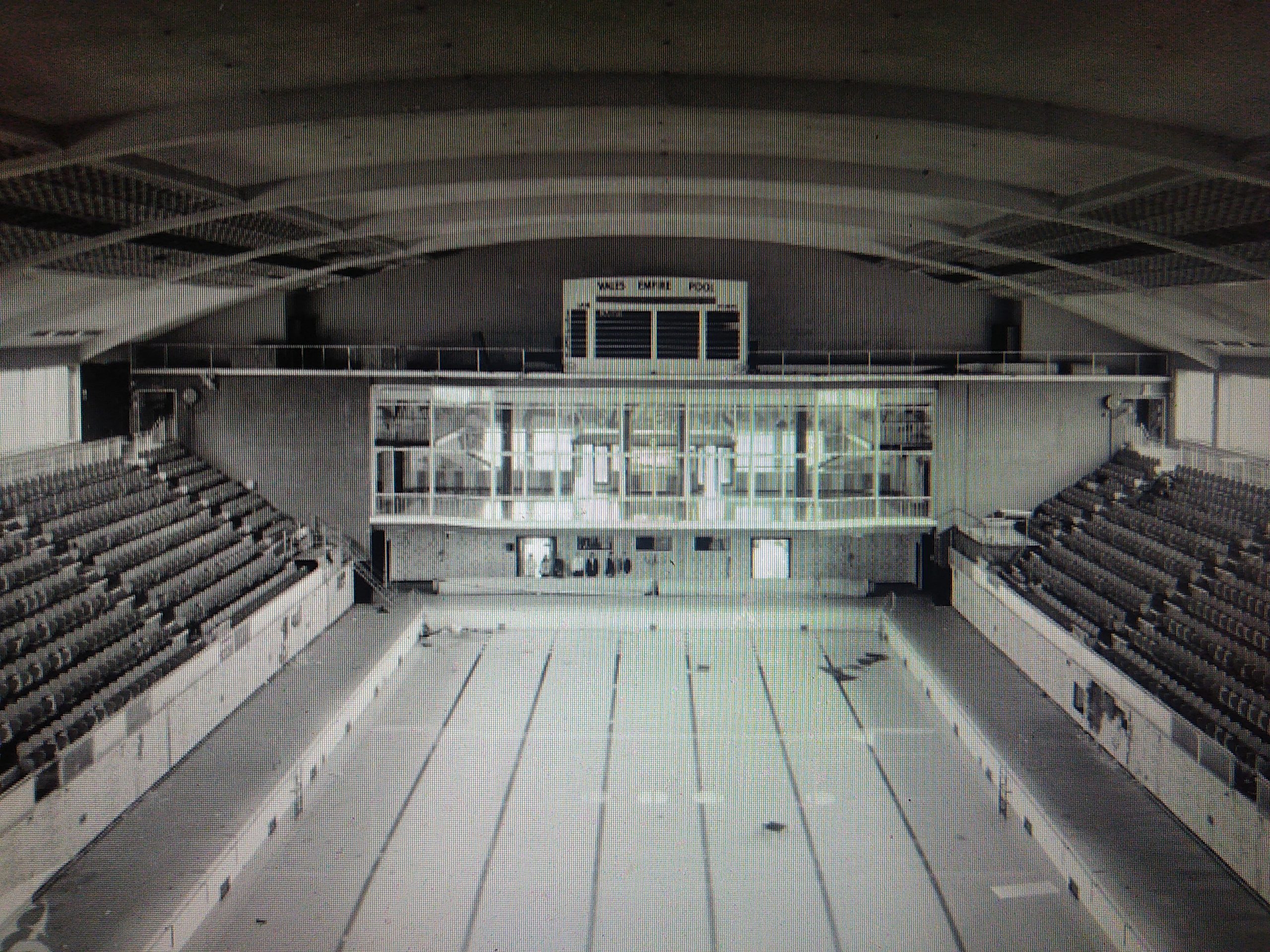
.The Empire Pool
Those who were not convinced of the potential of the Cardiff games, should listen to the words of Ken Jones: ‘The triumph of Wales and Cardiff in staging the sixth Empire and Commonwealth games will ring down for years to come’!
Professor Stead, reflecting on the games in Cardiff, to the BBC in 2012 noted that, ‘It did give Wales a sense of confidence in our own identity, starting a process which led to the establishment of the National Assembly [established in 1999] and which is still ongoing’.
However, in 1958, the media focused on the team’s strong showing in the games rather than about any long-term legacy and according to boxing historian Wynford Jones, the strong showing of the boxing team was to leave its own legacy. ‘You could argue that only Howard Winstone went on to have a professional career, but that’s only half the story’, suggested Jones talking to the BBC on the eve of the 2012 Olympics; ‘The attention which the Welsh boxers gained, made the amateur sport so much more popular around Wales and laid the foundations for many of the successful boxers of the future’. The Welsh Amateur Boxing Association was set up in 1910 with the specific intent of promoting and developing amateur boxing in Wales and has produced a number of highly decorated world-class amateur boxers such as, Eddie Avoth, Brian Curvis, Pat Thomas, Jonny Owen and Colin Jones.
‘The same thing happened with athletics’, argued Jones, ‘and you could say that the performance of Lynn Davies [ gold medalist in the long jump in the Tokyo Olympics in 1964], owes his gold to the games in 1958’
Davies born in 1942 in Nantymoel near Bridgend, known affectionately as ‘Lynn the Leap’, also competed in the 100m and 4x100m relay in Tokyo and went on to become European Champion in 1966 and Commonwealth Champion in 1966 and 1970, becoming the first man to win the title twice. He was also winner of the BBC Wales Sports Personality of the Year in 1964 and 1966.
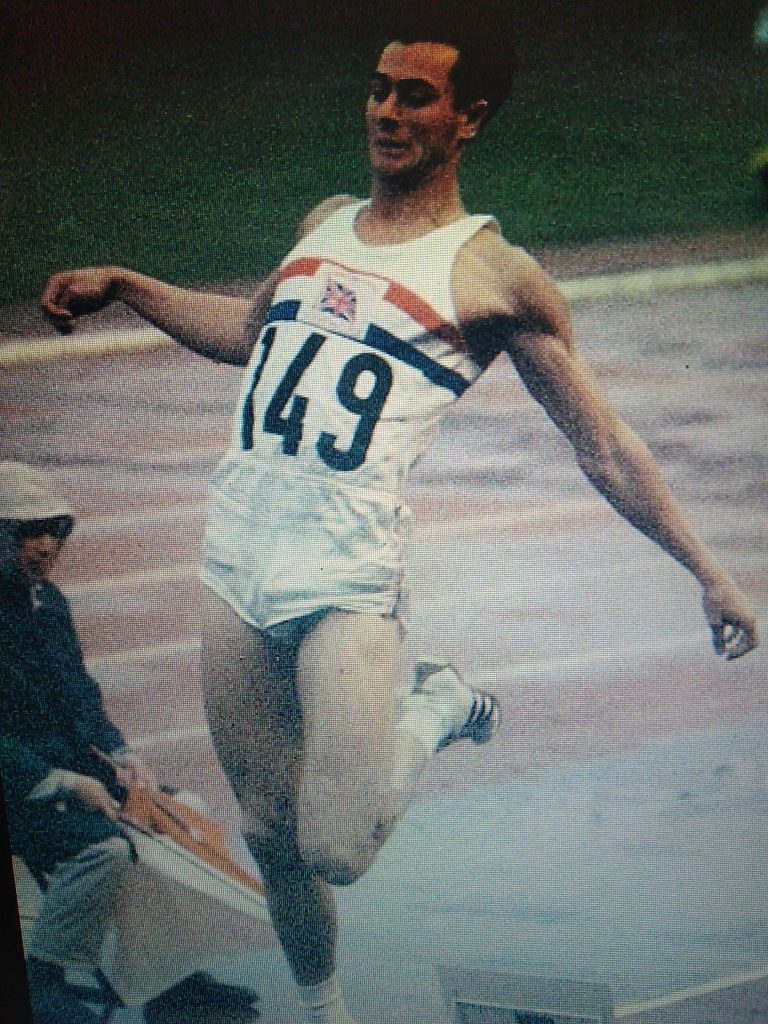
Lynn Davies winning Gold at the 1964 Olympic.
In Cardiff, John Merriman took a silver medal in the 6 miles [10,000m] for Wales; three world records were set, nine UK all-comers’ records, sixteen UK national records and six Welsh all-comers’ records were also set.
Athletics in Wales has a long and illustrious history, with the first recorded ‘Athletics meeting’, taking place in Aberystwyth in 1860, however it took until 1948 for the Welsh Amateur Athletics Association to be formed.
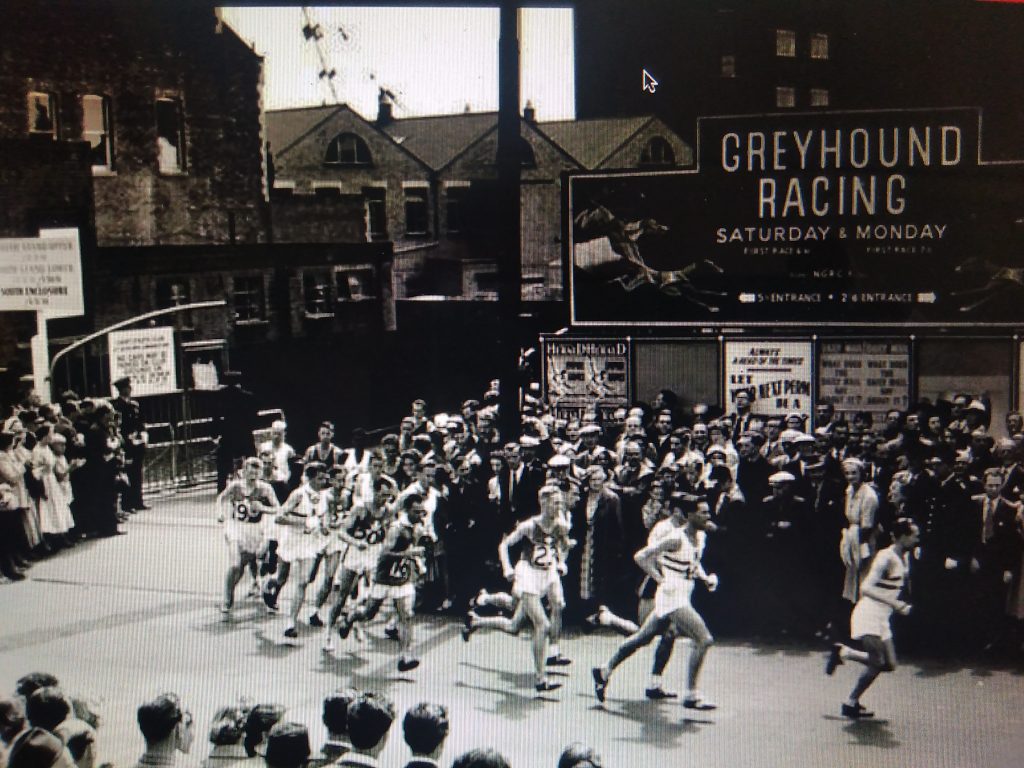
The Marathon weaves through the streets of Cardiff
As a legacy of the Cardiff games, interest in athletics in Wales really took off; a track and field facility was opened in Colwyn Bay in 1959, with a match between Wales and Nigeria, followed by the ‘first Welsh games’ held at The Maindy Stadium in Cardiff, which also incorporated a match between Wales and Pakistan.
Athletics clubs started to spring up across Wales in the early 1960’s with Neath Harriers formed in 1961, followed by Port Talbot and Swansea both setting up clubs in 1962. In 1965, Tony Harris from Cardiff became the first Welshman to run a mile in under four minutes and ‘The International Cross-Country Championships’ were held in Barry, with a women’s event included for the first time. In 1969 Cardiff AAC was formed by a merger between Roath and Birchgrove Harriers, creating the biggest club in Wales.
Welsh athletes have continued to perform at the highest level for Great Britain [Colin Jackson in 1990 and Dai Green in 2011 both becoming World Champions] and at the delayed Tokyo 2020 Olympics, Welsh women re-wrote the country’s history with gold medals in boxing and sailing and for the second successive Olympics they outnumbered men in the number of medals won by Welsh competitors. In Tokyo there were again a record-equalling 11 Welsh medal winners, six being women. In the Paralympics two weeks later, Welsh competitors picked up 14 medals on behalf of Team GB; so it appears that the delayed Games were worth the wait for those Welsh athletes competing and Paris 2024 is only two years away.
- Aled Davies- Paralympic Gold Medalist
- Olivia Breen wins Commonwealth Gold in Birmingham
In Birmingham 2022 [which included Para events for the first time] Wales achieved its best ever position in the medal table, finishing 8th, ahead of countries such as South Africa, Jamaica and Kenya, securing 8 gold, 6 silver and 14 bronze., with Para athletes contributing half the golds. Arguably, Welsh sporting identity has never been stronger!
Richard Holt, in his book ‘Sport and the British: A modern History [1989] argues that cultural identity is ‘a two-way process and that sport has not only helped the Welsh see themselves as a nation, but it has also helped others accept ‘Welsh Nationhood’ too’. He suggests that ‘Wales may not have a presence on the international political stage [although the National Assembly would open in 1999], ‘ it does have a long history of its national teams and associations gaining considerable media attention’!
The women’s football team recently came close to qualifying for the World Cup andt it is only a matter of time before they do
- Jess Fishlock- Wales football captain
- Gareth Bale and Aaron Ramsey
For the men, 64 years since they last competed at this level, they now look forward to their World Cup date with destiny at Qatar 2022.
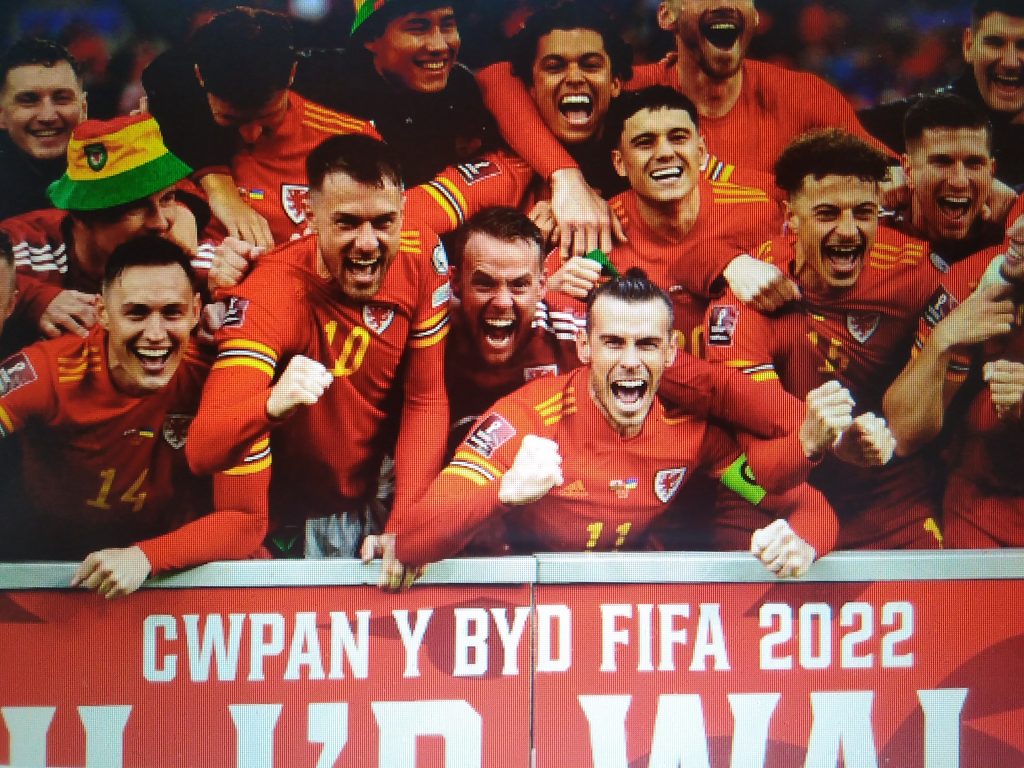
Wales qualify for Qatar 2022s
Article © of Bill Williams

